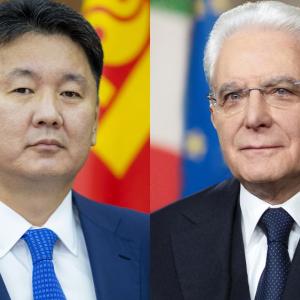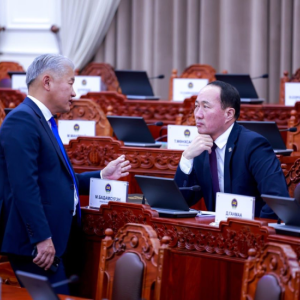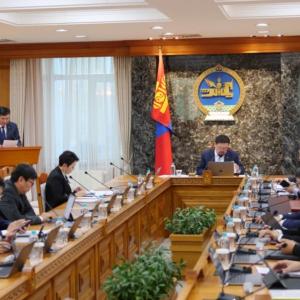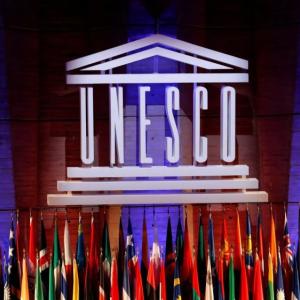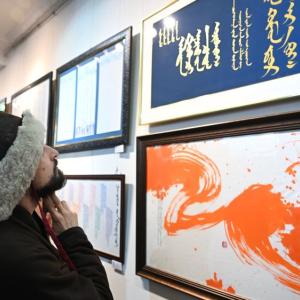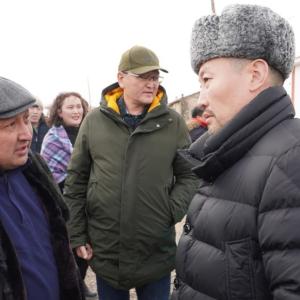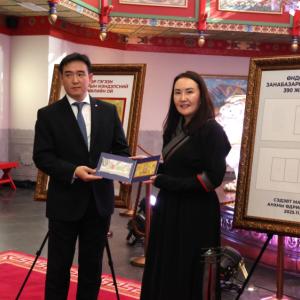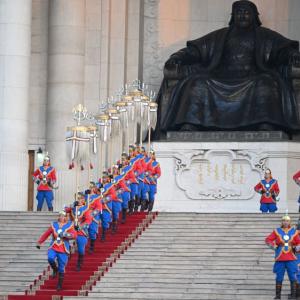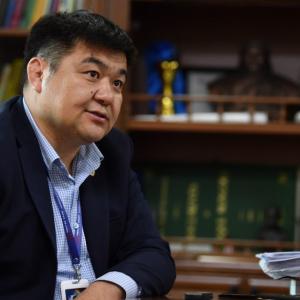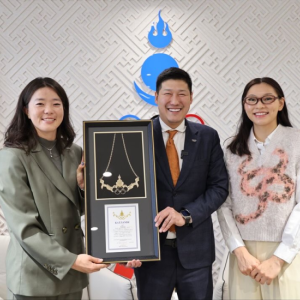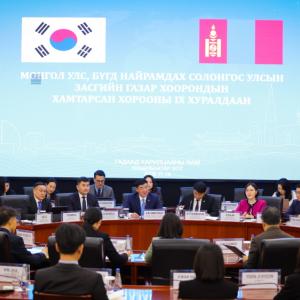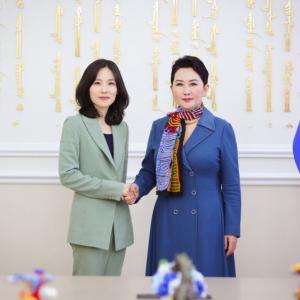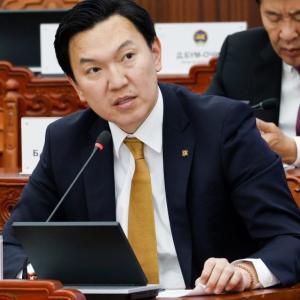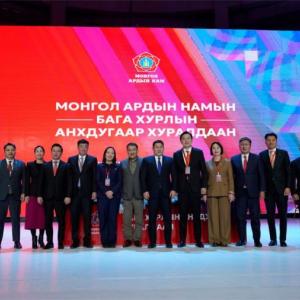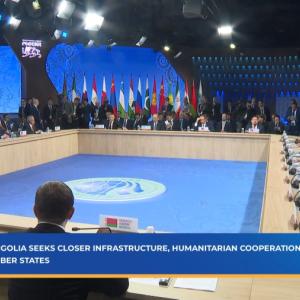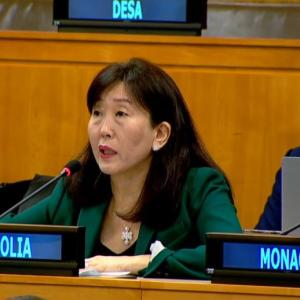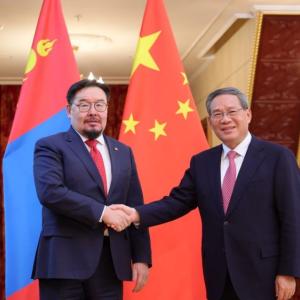Heeding the Zeitgeist
The Mongol Messenger"Initiated by the President and passed by the Parliament,
it is an amendment to authorize dismissal
before the end of their term of the leadership of
judicial institutions, who are ineffective, corrupt,
and use torture”
Enkhbold
Zandaakhuu, Chief of Staff to the President
The confused
and the reality
Just as
the Parliament was about to discuss the amendment bill to the Law on the Legal Status of Judges, the
current and former leadership of the Democratic Party held a hasty press
conference at late hours of the night, vehemently opposing the legislative process.
Many other
hasty actions have followed and snowballed into a confusion:
-
Democratic Party called and then canceled an Extraordinary
Assembly.
-
Former President Elbegdorj summoned members of
the press to “preach” that a system without minister would be better than a
system without judiciary.
-
While claiming that he has been “dragged through
the ‘tunnel of injustice,’” former Member of Parliament Garamgaibaatar also claims
that “as they already dismissed my corruption case, nothing should be changed
now.”
These
confused people have accused that the amendment in discussion has “compromised
the judicial independence” and “destroyed democracy.”
According to opinion polls after polls, citizens have frequently ranked the judiciary as “the most unjust, corrupt, politicized, and vulnerable to undue influence” among public institutions. The main reason to propose this amendment of the Law on the Legal Status of Judges is the fact that delay of justice and dismissal of white-collar crimes of judges and prosecutors have become too common to ignore. The following is a list of just a few of the most well-known unresolved cases:
- - Case of privatizing 49 percent of the Erdenet Mining Corporation using state funds and failing to inform the Parliament;
- - Case of obtaining a large-sum loan for private use from the South
African Standard Bank using forged documents and putting the Erdenet Mining Corporation as
collateral;
- - Case of the so-called 60 billion tugriks
that created a wide-scale scheme to sell public office positions, interfered with the election process, and seized the state power illegally;
- - Cases of obtaining loans by members of parliament and high-ranking
officials from the SME Development Fund through abuse of power and misuse of state
funds;
- - Case of attempting to illegally privatize the Tavan Tolgoi mine for free to a foreign company for hundred years; Case of ineffective spending of billions of tugriks and forcing to procure bogus equipment in the name of air pollution fighting;
- -
Cases involving the officials who are associated with the Salkhit
silver mine scandal;
- - Cases of high-ranking officials who laundered money and avoided taxes by transferring their money to offshore accounts;
- - Case of the Capital Bank, which despite of its failure of meet banking requirements, has amassed an inordinate sum of money from pension funds, mismanaged it, and became insolvent.
These are just a few of the cases that the
public know of, and none of the culprits who have misappropriated billions of
tugriks have been held responsible before law. The public is rightfully enraged
by this gross injustice.
The genesis of politicization and
attempt to unabashedly influence the judiciary and anti-corruption agency can
be traced back to 2009.
How the pillars
of “the tunnel of injustice” have been erected
One of the
first things that Elbegdorj did after becoming the president is dismissing
Prosecutor General M.Altankhuyag from his duty. All the high-ranking public
officials expressed their unwillingness toward forced step down in direct and
indirect manners, and the wave of dismissals started with the Prosecutor
General Altankhuyag because Elbegdorj had managed to acquire evidences that
were serious enough to blackmail Altankhuyag.
To get rid
of him without causing any scandal, Elbegdorj spread fake news to the media in
his pocket that Prosecutor General Altankhuyag was “planning to resign” while
the latter was receiving medical treatment abroad. The news stories didn’t
forget to invent a quote from Altankhuyag saying, “my term will end in 2010, but
I am thinking about resigning before then,” purportedly said during his meeting
with Elbegdorj. Altankhuyag hurriedly returned to Mongolia and met with Elbegdorj,
after which he “willfully resigned without complaints.” He was replaced by Dorligjav,
a close confidant of Elbegdorj. This appointment paved the way for dismissal of
more and more public officials.
The next
target became the Chairman of the Judicial General Council and Chief Judge
S.Batdelger. Because they could not find any tangible flaw in him, Elbegdorj
sent an official letter to Chief Judge Batdelger in June 2010 demanding to “hold
certain 13 judges who submitted fraudulent diplomas accountable.” Just as the
response letter had been drafted, news was leaked to the press that Batdelger
had supposedly said, “the authenticity of judges’ diplomas is none of the president’s
business.” After meeting with Elbegdorj, Batdelger also voluntarily resigned
before the end of his term. As a reward for stepping down without causing any
scandal, Elbegdorj had awarded Batdelger with the State Honored Lawyer title.
Despite the fact that the replacement Chief Judge had health issues and was
spending most of his time in the hospital, Elbegdorj extended his term in 2016
because his “blind obedience” has turned out to be valuable.
By the middle
of 2010, Elbegdorj had managed to put the highest-ranking judiciary officials
under his thumb. But the dismissal of the Independent Authority Against Corruption’s
(anti-corruption agency) Director General Ch.Sangaragchaa, who was appointed in
2008 upon the recommendation of then-President N.Enkhbayar, proved to be
problematic. Elbegdorj made a statement saying “the anti-corruption agency is
incapable of performing its main duty. It’s failing to crack down the root of
corruption. It has become an institution under the control of big oligarchs and
turned into corruption agency, not anti-corruption agency. Therefore, the
leadership must be held responsible.” Shortly after becoming the Prosecutor
General, Dorligjav also started to publicly call for the dismissal of Sangaragchaa,
and undoubtedly he followed the orders of Elbegdorj.
After orchestrating
series of farcical events, court sentenced the anti-corruption agency Director
General Sangaragchaa and its Deputy Director General Sunduisuren for 2.4 years
of imprisonment on November 26, 2011 on charges of “revealing state secret,
ordering an illegal clandestine operation to spy on a junior official E.Amarbat,
abusing power, and defaming Chairman of the Democratic Party and Member of
Parliament S.Erdene.” Interestingly, after Elbegdorj stepped down from power,
Sangaragchaa and Sunduisuren lodged a petition to the Civil Court of Sukhbaatar
Ditsrict in 2017, and were acquitted and received a sum of 43,484,199 tugriks each
from the anti-corruption agency as compensation. Perhaps the reason why Chairman
of the Democratic Party Erdene is vehemently protecting Elbegdorj and the
judiciary leadership appointed by him could be explained through these events.
The events
carried on with further farcical acts such as appointing N.Ganbold as the Director
General of the anti-corruption agency in 2011, but forcing him to voluntarily
resign in April 2016 due to “health reasons.” Yet the fact that he was
appointed shortly after his resignation as the Chief of Military Intelligence
Directorate at the General Intelligence Agency proves that there were no health
reasons whatsoever. Soon it became evident that appointing new anti-corruption
agency Director General N.Enkhjargal before Ganbold’s end of term ensures that
the former would be heading the agency for at least five more years and “protect”
Elbegdorj.
Based on
the recent statement by Head of the Cabinet Secretariat L.Oyun-Erdene that “over
40 officials were appointed on orders during the presidency of Elbegdorj,” the
alarming scale of Elbegdorj’s influence over the judicial institutions could be
understood. Serious evidences have recently started to surface, serving as
proofs of concealment of white-collar crimes, false charging of the political
rivals of Elbegdorj for made-up crimes, and using torture methods on suspects to
solve the murder case of S.Zorig.
Despite
these overwhelming evidences, the hysteria of some politicians and members of
the Democratic Party claiming that “the judiciary institution that has been fair
and independent before is about to collapse” is perceived by the public as a futile
“rhetoric.” During the years when Elbegdorj was acting as if no law could ever touch
him, where were they? Why didn’t they do anything to defend democracy? Before Elbegdorj
used to replace and influence the leadership of the judiciary and prosecution
office through blatant coercion, pressure, and threats. Now the law has been
amended so that the Parliament would finally able to discuss and make appointments
in accordance with the spirit of the constitution. Who is more democratic after
all?
As a final scheme to retain and protect their influence over the judiciary
institution, the special interest group has begun to disseminate fake news to
the international community. State institutions such as the judiciary, prosecution
office, and the anti-corruption agency have all been proven, with clear
evidences, using torture methods to obtain forced confession. This is a clear
violation of human rights, which constitute the core value of our democracy. It
has completely shattered the public’s faith in the rule of law and judiciary
system by violating the citizens’ rights to due process, and served loyally to the
interests of the powerful by renouncing justice. Yet the very same people are
now shouting slogans such as “democracy is in peril,” “judicial independence
has been compromised,” and “taking a step back from democracy” to gain
international support. This is only a faint attempt to hide the internal
problems by portraying it wrongly to the international community.
In reality, the procedure
on the deliberation of suspension and dismissal of judges in the Parliament upon
the recommendation of the Judicial General Council is still in place. The Judicial
General Council can function in accordance with the Section 4 of Article 49 of
the Constitution of Mongolia, which states that “the Judicial General Council,
without interfering in the activities of courts and judges, deals exclusively
with the selection of judges from among lawyers, protection of their rights,
and other matters pertaining to the ensuring of conditions guaranteeing the
independence of the judiciary.”
The only thing that the amendment did was that the absence of a legal subject designated to prevent and protect from the abuse of judiciary power has been filled with the National Security Council. With the amendment in force, the power granted to the NSC is simply to “propose to the Parliament to suspend administrative officials who failed to perform their duties,” especially in the cases that are “against national security and the citizens’ freedom.” The traditional procedure on proposing to the Parliament the appointment and dismissal of the leadership of the judiciary institution and the prosecution office could be traced back to 1992. The old procedure of dismissing these officials “only upon their own voluntary request” is now amended with an additional procedure to propose a dismissal of a judge to the Parliament by the NSC in case the official is failing to fulfill his duties fairly. This solution complies with the norms of democracy where the legislative branch exercises oversight on the judicial branch.
Zeitgeist
German philosopher Hegel first used the term zeitgeist which denotes the meaning of spirit of the times. In
every era, a schema of beliefs and attitudes are created, thus forming the
public perception and defines the spirit of the time. Hegel reminded us that in
such times, the opposing side is understood as defenders of the past and is
bound to be wiped out by the spirit of the time. Since ancient times,
Mongolians have defined zeitgeist as
the “commandment of Heavens,” and the great Chinggis Khaan was a leader who
strictly adhered to these commandments.
The spirit
of the time we live in is tilted towards dismantling the corrupt system created
by the special interest group that spun its web across political parties. If we
were to wait for their six-year term to end or hope that they will “resign on
their own” while the stagnation of justice is pervading the judiciary institution
and prosecution office, Mongolian people wouldn’t be able to tolerate anymore.
There is a limit to patience. The events of July 1, 2008, clearly demonstrated
the possible consequences of the outrage of the public who resented injustice
and exploded.
As the NSC
is responsible for preventing public disorder and ensuring the core national interests
and national security of Mongolia by upholding justice, they are only
fulfilling their mandate. The NSC has spared the nation a massive risk that
could have metastasized. Now the “tunnel of injustice” and the corruption
system that has been infiltrated into the Mongolian state is tumbling down in
due course. Whosoever that tries to stop this natural process will perish in
the collapse of the corruption system, no matter how good of a slogan they
shout.
Heed and
feel the spirit of the time.
Mungunchimeg Gansukh is a communication strategist,
obtained her Master of Communication degree from
the University of Queensland, Australia.
 Ulaanbaatar
Ulaanbaatar





